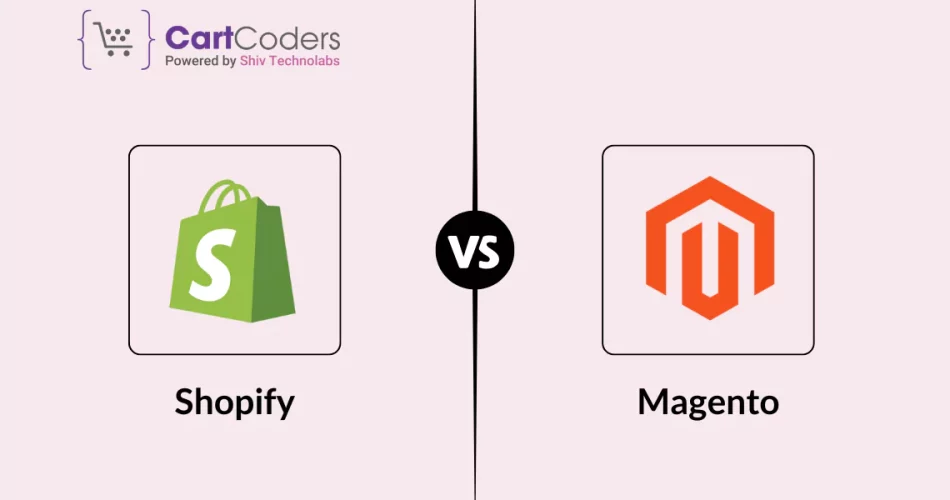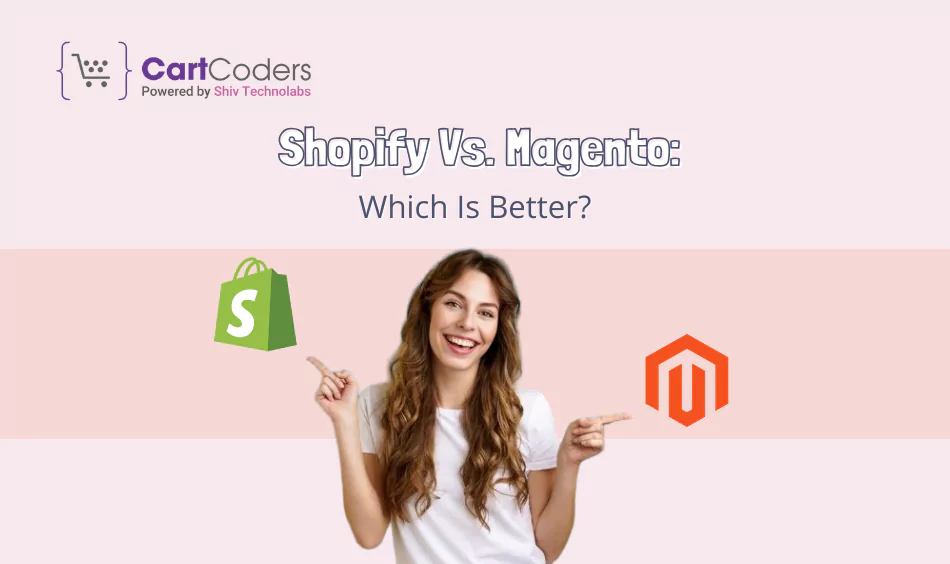Custom Engagement Solutions
Unlock tailored solutions with a free, no-obligation strategy session.
Expert Developers & Engineers on Demand
Scale Your Team with Skilled IT Professionals
Expert Guidance for Digital Transformation

Many eCommerce platforms exist, but Shopify and Magento are two of the most powerful and widely used platforms. They are companies designed to work with organisations of all sizes; however, they are still quite different in various aspects, such as the characteristic features, the prices offered, and the ease of operation.
Shopify is an all-in-one hosted application that is extremely easy to use and install. It is perfect for small businesses up to medium and those starting their online selling journeys. Shopify’s gross profit for Q3 2024 stood at $1.12 billion, up from $901 million in Q3 2023, reflecting a 24% year-over-year growth. The Shopify Plus program provides numerous customisable features, connections, and suitability for large-scale companies.
At the same time, Magento is an open-source and flexible platform that gives ultimate freedom for customisation, which is why large businesses prefer it with more complicated requirements.
As per W3techs, Magento is used by 0.9% of all the websites whose content management system is known. It has multiple store administrations and compatibility with superior-level third-party systems, making it suitable for global or multiprint outlets.
This article outlines the key elements of Shopify vs. Adobe Commerce (Magento) to aid your decision-making process and help you select the desirable platform.
Here are key differences between the two leading eCommerce platforms to help you make an informed choice for your online store.


You Need Complete Customization: Magento is perfect for such businesses since it is an open-source platform.
You Have a Higher Budget: Magento is also more expensive in terms of developers and web hosting services. In return, it will meet certain businesses’ flexibility and control needs.
You Run Multiple Stores: With a multi-store facility, Magento is the best platform for companies that run different brands or branches.
You Are an Enterprise Business: While Adobe Commerce is a powerful tool for any business, for enterprises in particular, it offers even more features, such as advanced segmentation, useful for delivering highly personalized experiences to customers or prospects, as well as deep integrations with external systems needed for enterprise operations.
Choosing the right platform between Magento and Shopify may be difficult without proper guidance. CartCoders is a professional web development company offering Shopify development services, giving flight to youreCommerce store idea. Our team of expert developers is ready to provide you with a smooth Shopify migration and development solution that lend upper hand for your online business.
Our services include:
Shopify and Magento provide eCommerce solutions through strong tools to create and operate online stores, though they serve different market segments. Shopify delivers an all-in-one platform designed to meet the needs of small businesses and those who value plain simplicity and easy, usable interfaces. The open-source foundation of Magento delivers exceptional control and adaptability that suits companies with tough needs or venture into multiple shop operations.
CartCoders focuses on delivering successful online solutions to businesses. Our team of expert developers supports businesses in migration projects and customisations and new store development for their specific requirements. Contact us today and bring your online store idea to life.
While Magento enables extensive customization, it demands high technical knowledge and full personal responsibility for maintenance. The all-in-one approach through Shopify provides businesses with user-friendly hosting, security and customer support and a more efficient package than Magento.
Your responsibility expands to both hosting equipment and update management when you choose Magento, and must also maintain website security. Additionally, premium plugins and themes incur extra costs. Small businesses and entrepreneurs find Shopify more suitable since its packages provide both hosting and security, thus simplifying overall operating complexity.
Performance with Magento depends on how well the system gets optimized and which hosting infrastructure is used to accommodate 50,000 products. Shopify provides entrepreneurs and small businesses with a sturdy hosting platform and flexible infrastructure for large inventory management operations.
Instances of Magento open source exist at no cost, yet operating a Magento store demands expenditures on web hosting, together with premium plugin acquisitions, theme purchasing, and software development support. Shopify incorporates fundamental features within its pricing plans, offering businesses a direct and economical solution compared to Magento.
Store management with Magento includes essential operations that do not require coding, yet store customization and expansion usually require developer knowledge. Shopify is an intuitive platform for beginners, and its advanced features can be accessed through the app.
Projects delivered in 15+ industries.
95% retention rate, building lasting partnerships.
Serving clients across 25+ countries.
60+ pros | 10+ years of experience.